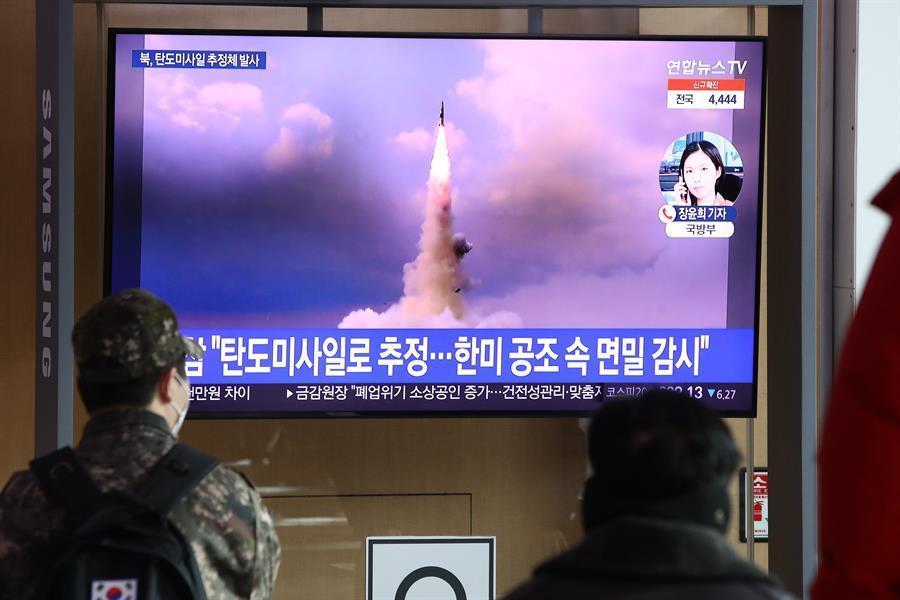
North Korea fired what appeared to be a ballistic missile into the sea on Jan. 5, South Korea and Japan said, in the first such launch by Pyongyang this year.
In the decade since Kim Jong Un took power, North Korea has seen rapid progress in its military technology at the cost of international sanctions.
The nuclear-armed nation’s first apparent weapons launch of 2022 followed a year of major arms tests despite the severe economic hardship during the coronavirus pandemic.
The South Korean military said the North fired what is "presumed to be a ballistic missile" towards the sea east of the peninsula at around 8:10 am (2310 GMT Tuesday).
"South Korean and US intelligence are closely analysing for further detail," the Joint Chiefs of Staff in Seoul said in a statement.
Japanese Prime Minister Fumio Kishida described it as a "possible ballistic missile launch".
"It is truly regrettable that North Korea has continuously launched missiles since last year," he told reporters.
Kishida said the Japanese government was analysing details, including how many missiles may have been launched.
The Japanese coast guard had said earlier it spotted what appeared to be a ballistic missile fired from North Korea, warning vessels in the area to not approach any suspicious objects.
The launch followed a speech by Kim last week in which he said North Korea would continue to build up its military capabilities.
In 2021, North Korea said it successfully tested a new type of submarine-launched ballistic missile, a long-range cruise missile, a train-launched weapon, and what it described as a hypersonic warhead.
The dialogue between Washington and Pyongyang remains stalled, following the collapse of talks between Kim and then-president Donald Trump in 2019.
Under Trump’s successor Joe Biden, the United States has repeatedly declared its willingness to meet North Korean representatives, while saying it will seek denuclearisation.
But Pyongyang has so far dismissed the offer, accusing Washington of pursuing "hostile" policies.
At the end of a key meeting of the ruling Workers’ Party last week, he did not mention the United States at all.
Instead of the policy positions on diplomacy for which Kim’s New Year statements have been closely watched in recent years, he focused on food security and development in an extensive speech.
But he said Pyongyang would continue to boost its capabilities keeping in mind "the military environment of the Korean peninsula" and the changing international situation.
North Korea is under multiple sets of international sanctions over its nuclear and ballistic missile programmes, which have progressed rapidly under Kim.
The impoverished nation has also been under a rigid self-imposed coronavirus blockade that has hammered its economy.
The worsening economic situation during the pandemic, however, has not blunted those programmes, and North Korea has continued to pursue weapons development, a UN report said in October.
Concerns have grown about a full-blown food crisis in North Korea, and a United Nations human rights expert warned in October that the most vulnerable were "at risk of starvation".